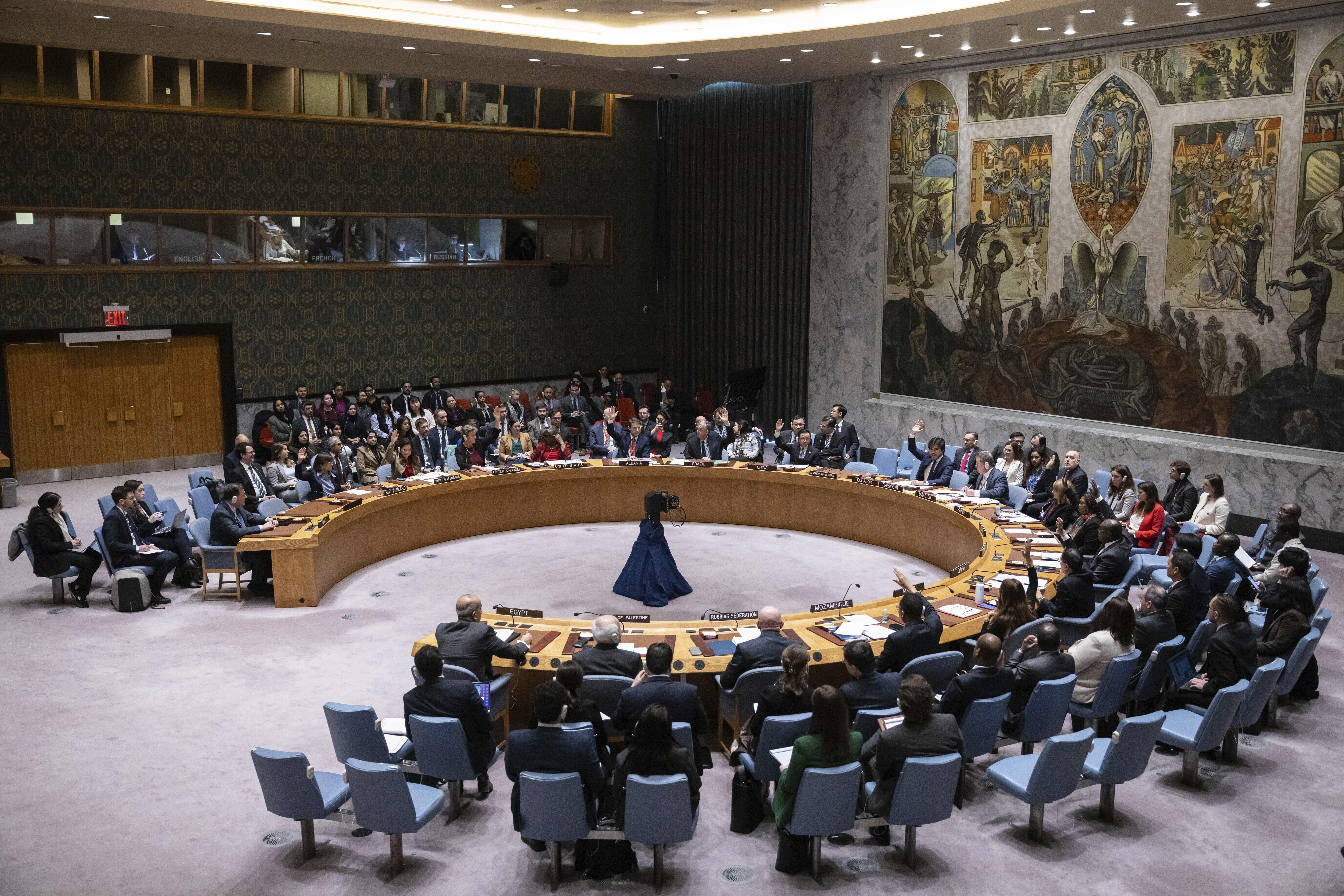 Representatives of member countries take a vote during the Security Council meeting at United Nations headquarters, Dec 22, 2023. (PHOTO / AP)
Representatives of member countries take a vote during the Security Council meeting at United Nations headquarters, Dec 22, 2023. (PHOTO / AP)
UNITED NATIONS - The UN Security Council on Wednesday held an open meeting on Houthi rebel attacks in the Red Sea, amid growing concerns for global trade and regional stability due to the ongoing Israel-Palestine conflict in Gaza.
ALSO READ: Yemen's Houthis claim new attack on cargo ship in Red Sea
UN Assistant Secretary-General Khaled Khiari told the council that "no cause or grievance" could justify continuing Houthi attacks against freedom of navigation in the Red Sea, adding that all incidents originating in Houthi controlled areas "must stop”.
A significant number of companies are already rerouting their ships around South Africa to reduce their risks, which takes an additional 10 days to journeys on average and negatively impacts international trade, and costs of freight, said Dominguez (The Secretary-General of the International Maritime Organization, Arsenio Dominguez)
He encouraged "all concerned parties" in the wider region to avoid any further escalation and de-escalate tensions and threats and called for a return to the regular flow of traffic to avoid the risk of Yemen being "dragged into a regional conflagration”.
The Secretary-General of the International Maritime Organization, Arsenio Dominguez, described the attacks as unacceptable, saying ships "must be allowed to trade worldwide unhindered and in accordance with international law”.
READ MORE: Iranian warship enters Red Sea amid heightened tension
He reiterated a call for de-escalation "to ensure the safety of our seafarers, freedom of navigation and stability of supply chains”.
A significant number of companies are already rerouting their ships around South Africa to reduce their risks, which takes an additional 10 days to journeys on average and negatively impacts international trade, and costs of freight, said Dominguez.
He reminded of earlier recommendations agreed in December on how to deal with the crisis, saying IMO had a program already in place on security in the Red Sea region.
READ MORE: Iran, Britain discuss Red Sea tension
Nicolas de Riviere, the permanent representative of France to the United Nations, which holds the presidency of the council this month, said that it is the collective responsibility of this council to ensure that the peace process in Yemen continues according to the road map of the UN special envoy on Yemen.
Vassily Nebenzia, Russia's permanent representative to the United Nations, said that restrictions on freedom of navigation in the Red Sea and Gulf of Aden were "not happening in a vacuum”.
He said nobody should deny that "what is happening in the Red Sea is a direct projection of the violence in Gaza, where Israel's bloody operation has been ongoing for three months”.
READ MORE: Jordan forms committee to monitor shipping in Red Sea
Escalation is also happening in other occupied Palestinian territories, he continued, as well as across the Israel-Lebanon border.
He blamed the United States for covering up Israel's actions and holding the remaining members of the Security Council "hostage" by vetoing any resolution demanding an immediate ceasefire.
In his inaugural address as a Security Council member, Algeria's permanent representative to the United Nations, Amar Bendjama, recognized the crucial role of the Red Sea passage as of "paramount importance for the whole world”.
READ MORE: Red Sea shipping workarounds add costs, delays for suppliers, retailers
He said the crisis at sea must be seen within a broader regional context.
He noted that the Red Sea is "far more than just a trade route", hailing it as a historic region with legitimate aspirations and hopes.
The Security Council issued a press statement on Dec 1, addressing the Houthi threat and condemning the attacks "in the strongest terms”.
The Security Council's most recent meeting about the crisis on Dec 29 saw UN Secretary-General Antonio Guterres warn of the widening risks of further spillover.


